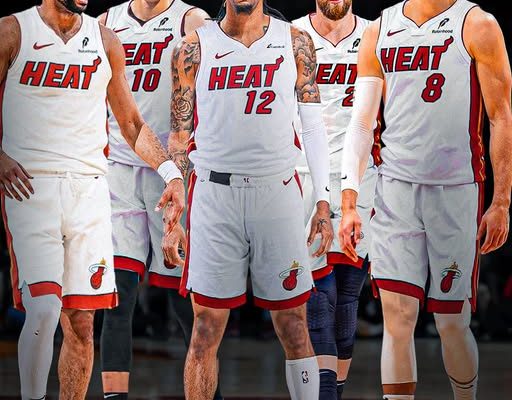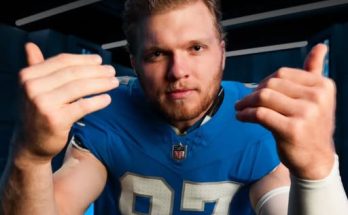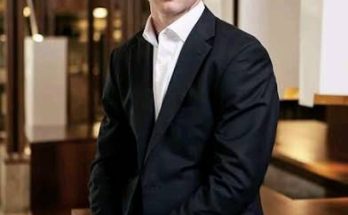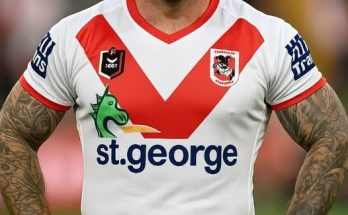The Miami Heat under Pat Riley have never been a franchise content with mediocrity. From the day Riley arrived in South Beach, the blueprint has been simple: aim high, build culture, and never back down from boldness. That’s why the Heat remain one of the most compelling teams in the NBA year after year. Even after missing out on high-profile names or falling short in deep playoff runs, they are always hovering around the conversation. And now, with a quiet offseason by their standards and a roster in flux, whispers around the league are beginning to crescendo—Riley is working on something big.
There’s a reason Riley’s name is synonymous with transformative trades and headline-making signings. This is the same executive who convinced LeBron James and Chris Bosh to team up with Dwyane Wade in 2010. The same architect behind the retooling that brought Jimmy Butler to town and catapulted the Heat back into contention. In the current NBA climate where superstars get restless and trade demands shift the landscape at the drop of a Woj bomb, Miami’s stable yet aggressive front office makes them a perennial threat. If history is any indication, it’s not a matter of if Riley and the Heat will make a move. It’s when. And more importantly, it’s who.
The Heat’s current roster is still built around the core of Jimmy Butler, Bam Adebayo, and Tyler Herro. But questions loom. Butler will be 36 by the time the playoffs roll around next year and has dealt with injuries in each of the last two seasons. Adebayo remains one of the most versatile bigs in the league, but the team has never quite found the perfect complementary offensive pieces to unleash his full potential. Herro has been in and out of trade rumors for years now, his flashes of scoring brilliance often offset by defensive liabilities and health issues. That kind of roster purgatory—a mix of high-level talent with significant question marks—is exactly the kind of situation that Riley historically refuses to accept passively.
This offseason alone, the Heat were linked to names like Damian Lillard, Donovan Mitchell, and even DeMar DeRozan before he signed with Sacramento. While none of those deals materialized, they weren’t just smoke. Miami was actively trying to make something happen, and league insiders know the Heat don’t leak unless there’s substance behind it. The failed Lillard pursuit, in particular, reportedly left a bad taste in Miami’s mouth. Not just because they missed out on the All-NBA guard, but because it was one of the rare times their reputation as the “inevitable closer” didn’t deliver. That kind of slight is the fuel Riley thrives on.
What’s particularly interesting about the Heat’s current approach is that they’ve become even more selective. Gone are the days when Miami was simply collecting names. Riley has always understood fit and mindset matter just as much as skill set. The Heat culture—a buzzword thrown around often but taken very seriously within the organization—demands a certain type of player. Tough, relentless, accountable. That’s why someone like Marcus Smart is reportedly on Miami’s radar. After years of being the emotional heartbeat of the Celtics and a former Defensive Player of the Year, Smart could bring the exact edge this team has been missing since P.J. Tucker departed. It’s not the flashiest move, but it’s precisely the kind of acquisition that can change the entire identity of a rotation.
But Riley’s eyes are undoubtedly on a bigger fish. As teams begin to reassess their direction after disappointing playoff exits or internal discord, Miami is poised to pounce. Several names come to mind. Trae Young’s situation in Atlanta is one to watch. Despite his offensive firepower, the Hawks have plateaued, and there are persistent rumblings that the franchise may be ready to retool. Young, for all his defensive limitations, would inject the kind of playmaking and offensive electricity that Miami has sorely lacked in halfcourt sets.
Another name worth monitoring is Brandon Ingram. The Pelicans haven’t made it past the first round in his tenure, and his fit alongside Zion Williamson has yet to fully blossom. Ingram’s combination of size, scoring, and youth would represent a longer-term bet while still allowing the Heat to compete now. And unlike Butler, Ingram isn’t nearing the tail end of his prime. Then there’s Lauri Markkanen in Utah. Quietly one of the most efficient scoring forwards in the league, Markkanen’s ability to stretch the floor could open up the entire Miami offense and give Adebayo the spacing he’s never had.
Of course, making these moves would mean parting ways with some combination of Herro, Nikola Jović, Jaime Jaquez Jr., and draft capital. That’s where Riley has always been willing to go further than most. He once famously referred to draft picks as chips you use to go to the casino. While the rest of the league covets draft assets like gold, Riley understands that Miami isn’t in the business of waiting around. Their timeline isn’t built on long-term rebuilds—it’s built on seizing the moment.
Beyond trades, Riley is also acutely aware of the importance of financial flexibility. The new CBA has made cap maneuvering more complex than ever, but Miami’s front office has proven to be adept at creating room when needed. Expect them to have an eye on 2026 free agency as well, when players like Jayson Tatum and Donovan Mitchell could theoretically hit the market. While landing either of those names would require Herculean effort and a bit of fortune, Riley has never let probability stand in the way of possibility.
But perhaps the biggest wild card in all of this is Jimmy Butler himself. After a quiet postseason exit and questions about his health and long-term durability, there’s some chatter around the league about whether the Heat would consider moving on from their star wing. That seems far-fetched on the surface—Butler has delivered multiple deep playoff runs and embodies the grit that Miami worships—but in a league where sentimentality takes a backseat to winning, it’s not out of the question. If the right deal presented itself, especially one that netted a younger star with more long-term upside, Riley wouldn’t hesitate. That’s not a knock on Butler, it’s simply the reality of doing business at the highest level.
What makes the Heat so dangerous in these situations is their ability to fly under the radar. While larger markets like New York and Los Angeles often generate more noise, Miami’s track record speaks for itself. Their pitch to players isn’t just about sunshine and nightlife—it’s about stability, toughness, and the chance to compete for titles. It’s about walking into a gym where every player is expected to be in peak condition and every minute is earned. That’s why so many players who struggle elsewhere flourish once they arrive in South Florida.
Riley’s mystique is part of it, too. He doesn’t sit courtside in Armani suits for no reason. He’s part godfather, part strategist, and part motivator. When he calls, players listen. That kind of credibility is invaluable in a league driven by relationships. It’s also why Miami never truly rebuilds—they just recalibrate. They lose in the Finals one year and bounce back the next. They miss a top target but pivot quickly. There’s no panic in the organization, only precision.
The Heat may not have landed the biggest name this summer, but don’t mistake inactivity for complacency. The chessboard is still being set. Riley is watching, waiting, and when the moment is right, he’ll move all-in. Because for the Heat, second-round exits and play-in tournaments aren’t acceptable outcomes. The standard is contention. The mission is banners.
And as always, Riley’s got something cooking behind the curtain. What it is exactly remains to be seen. But make no mistake—when the next star becomes available, you can bet Miami will be on line one. Because in South Beach, big-game hunting never stops.



